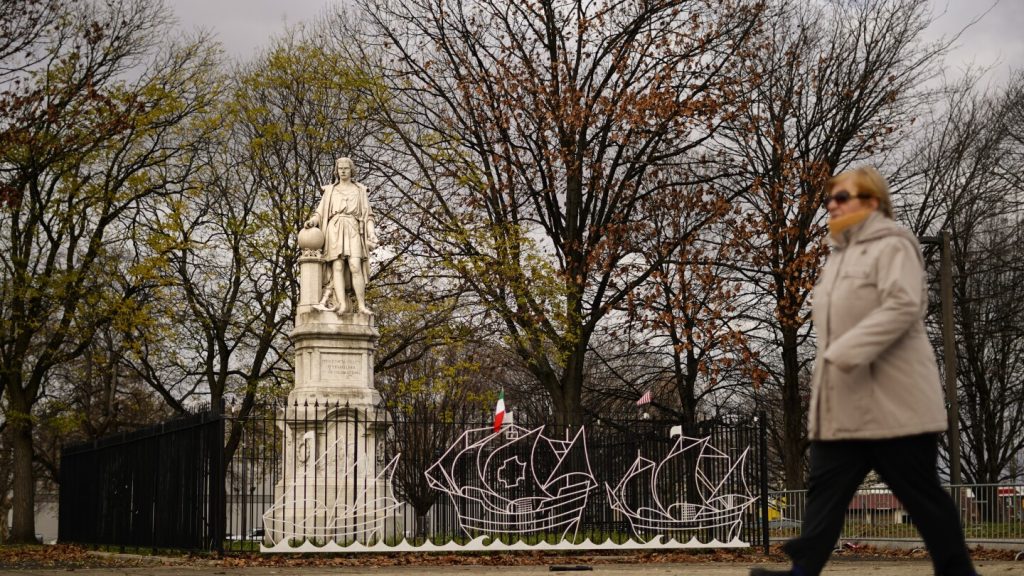A Pennsylvania appeals court has ruled to keep the challenge alive for an Italian heritage group seeking to prevent the removal of a Christopher Columbus statue from a park in Pittsburgh. The dispute over the 13-foot bronze and granite statue in Schenley Park has been ongoing since the Pittsburgh Art Commission voted to remove it and former Mayor Bill Peduto recommended its removal. The Italian Sons and Daughters of America filed suit in 2020, arguing that the mayor could not override a 1955 city council ordinance that allowed for the statue’s installation.
The Commonwealth Court sent the dispute back to the Allegheny County Common Pleas Court for further consideration of the issues raised by opponents of the removal. Despite efforts by Judge John McVay Jr. to find a solution such as relocation, the appeals court ruled that McVay erred in concluding that the group’s claims were irrelevant procedural quibbles. The court rejected the group’s challenge to McVay’s refusal to remove himself from the case, allowing the lawsuit to proceed.
Philadelphia attorney George Bochetto, representing the Italian heritage group, welcomed the ruling and called on the new mayor to engage in discussions to reach a resolution without further litigation. The Schenley Park statue, which has been the target of vandalism, was wrapped in plastic in 2020 but has since had much of the covering worn away or removed. The dispute over the statue reflects broader tensions over the legacy of Christopher Columbus, with supporters citing Italian heritage while critics point to Columbus’s controversial history of enslaving Indigenous people and imposing harsh punishments.
Similar disputes over Columbus statues have arisen in other cities, including Philadelphia, where former Mayor Jim Kenney ordered the removal of a statue following protests about racial injustice. However, a judge reversed the decision, citing a lack of evidence of a public safety need for the removal. In nearby cities like Camden, New Jersey and Wilmington, Delaware, Columbus statues have been removed, while in Richmond, Virginia, a statue was torn down, set on fire, and thrown into a lake. In Columbia, South Carolina, a statue of Columbus was removed after being vandalized multiple times, and a vandalized statue in Boston was also removed from its pedestal.
The ongoing legal battles and public debates surrounding Columbus statues highlight the complex legacy of the explorer and the differing views on how to commemorate historical figures with controversial pasts. The court rulings in Pittsburgh and Philadelphia have kept the discussion alive, with heritage groups seeking to protect statues as symbols of their cultural identity, while others argue for the removal of monuments that glorify figures with problematic histories. As cities grapple with these issues, the future of Columbus statues across the country remains uncertain, with communities divided over how to address historical controversies in public spaces.


